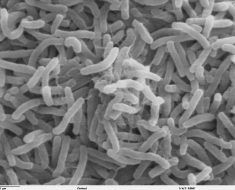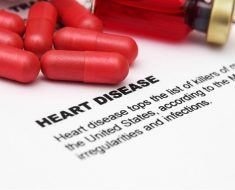Our hormones play an enormous role in how we look, think and feel. When they’re out of balance, it can feel like we have no control over our bodies. Our body doesn’t have a voice so it communicates to us through symptoms which may be asking us to eat, drink, move, think, breathe, believe or perceive in a different way so as to better support our health.
Often, the best place for us to start is with the way that we eat. It is nutrients that keep us alive, after all. Our bodies require nutrients to drive the biochemical reactions involved in producing our hormones, as well as changing the hormones so that they can be eliminated, or so the building blocks can be used for another purpose, once they have done their job. Yet, so many people base their food choices on calorie content alone, in an effort to reduce body fat. What they may not realise is that calories are just one of nine factors that influence whether our body is getting the message to burn body fat or store it. Our hormones account for four of the nine factors!
While some hormonal imbalances may benefit from specific and targeted doses of nutrients in the form of supplementation, there are some simple changes you can make in your everyday life to support better hormone balance.
But first, how do you know if your hormones are out of kilter? Some of the signs and symptoms of hormonal imbalances include:
Sex hormones:
- Premenstrual migraines
- PMS/PMT
- Irregular periods
- Heavy, clotty, painful periods
- A feeling like you can’t get your breath past your heart, or anxious feelings, in the lead up to menstruation
- Bloating/fluid retention, particularly in the lead up to your period
- Breast swelling and/or tenderness
- Mood swings
- Cravings, usually for sweets, in the lead up to your period
- Unexplained weight gain, particularly around the hips
- Skin breakouts with your cycle, particularly around the jaw line.
Stress hormones:
- Waking up feeling exhausted, despite getting enough hours of sleep
- Not sleeping well
- General fatigue
- You are a worrier and don’t relax easily
- Feeling tired but wired
- Poor short-term memory
- Sex hormone imbalances
- Unexplained weight gain, particularly aroundyour middle
- Easily panicked, orfeeling like everything is urgent
- Relying on coffee to get you started in the morning, or to get you through the day
- Adrenal fatigue
Thyroid hormones:
Symptoms vary depending on whether your thyroid is under or overactive. Should you suspect your thyroid is not functioning optimally, it’s best to speak to your doctor about having this tested.
Underactive thyroid:
- Unexplained weight gain
- Feeling cold in your bones
- Tendency toward constipation
- Dry skinand brittle hair
- Challenges with your periodsand/or you experience PMS
- Feeling weary to your bones
- Fluid retention
- Hair loss
- Groin pain
- Voice changes
Overactive thyroid:
- Unexplained weight loss
- Easily overheating
- Rapid heartbeat or palpitations
- Eyes bulging out of theirsockets
- Unexplained loose stools
Tips for addressing hormone imbalances
Focus on feeding your body with the nutrients it needs to build hormones
While of course eating in a way that includes mostly whole, real foods and minimises processed foods is beneficial, there are specific nutrients that the body uses when creating your hormones. Zinc is a key nutrient for sex hormone balance, for both men and women. Zinc is found in oysters, red meat, seeds (particularly pumpkin seeds) and eggs. It can sometimes be beneficial to supplement with a good quality food-based zinc supplement, particularly if you eat a plant-based diet or rarely eat red meat.
The adrenals love vitamin C, which is found in citrus fruits, kiwifruit, strawberries and capsicum. When we produce stress hormones, we also use up magnesium, so be sure to include magnesium-rich foods such as green leafy vegetables, nuts and seeds.
For the thyroid, selenium is particularly important and Brazil nuts are our richest dietary source of this. Iodine is also essential for thyroid hormone production, found in seaweed, seafood and good quality, iodised salt.
Take a break from caffeine & alcohol for two to three menstrual cycles
Alcohol and caffeine are substances that can put additional pressure on our body, especially our liver. The liver is our key detoxification organ and it also processes substances our body makes, such as sex hormones (think oestrogen). The liver will always prioritise processing problematic substances like alcohol (which would literally be life-threatening if it were to accumulate in our blood), so when it is overloaded with higher-priority substances, oestrogen may be recycled in the body, which can contribute to sex hormone imbalances.
Increase your restorative movement
Many people would benefit from incorporating more “yin” movement into their lifestyle on a regular basis. Yin movement includes Qi gong, tai chi, restorative yoga (particularly one called Stillness Through Movement), meditation or a simple breathing exercise that helps you to drop back into diaphragmatic breathing – long, slow breaths that move your belly in and out, rather than short, sharp, shallow breaths high up in your chest.
Dr Libby has just released her new book, The Beauty Guide and will be bringing her new event, The Hormone Factor around Australia during September, where she will explore ageing, hormones and beauty. For more information and tickets visit www.drlibby.com
Source: Read Full Article





